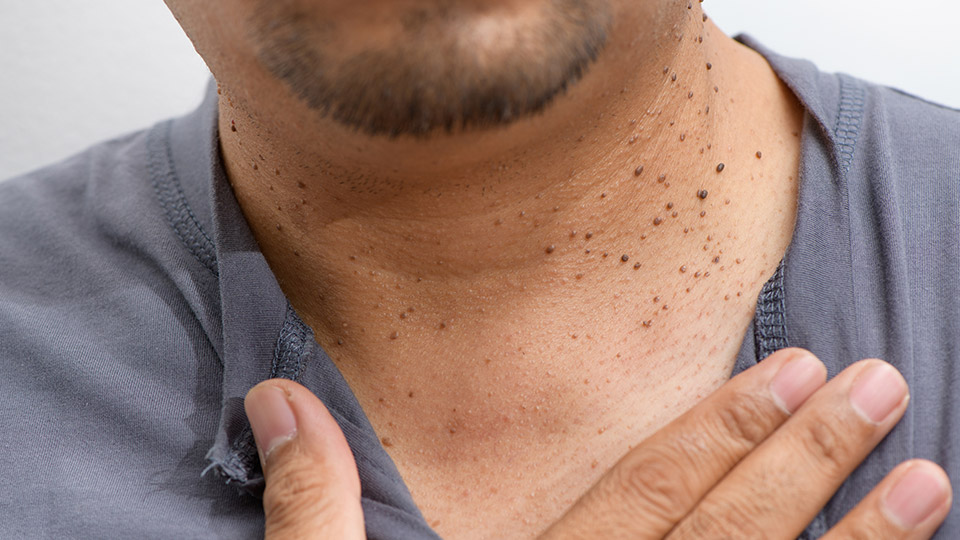
They’re tiny clumps of skin most of us notice appearing as we age, but skin tags can be more than just an unsightly annoyance.
Skin tags can put you at risk of infection and can be an indication of a bigger issue, and while they seem small and insignificant, skin tags should only ever be treated by a doctor.
Here’s what you need to know about skin tags and what you should do about them.
What are skin tags?
Skin tags are tiny growths that appear on our skin, usually as we age.
Normally, skin tags are less than two millimetres in size, and are often soft and flesh-coloured, although size and colour can vary in some individuals.
Skin tags are normally found in the folds of skin, like the armpit, eyelids or beneath the breasts.
Skin tags are made of collagen and contain blood vessels, and are connected to the skin by a small, thin stork.
What causes skin tags?
Skin tags are essentially extra cells that grow from the top layer of skin, and usually occur in places where the skin rubs together.
While this makes them common in overweight people, anyone can develop skin tags.
Men and women are equally prone to skin tags, although they are more common in the elderly and people living with Type 2 diabetes.
Pregnant women can also develop skin tags, but normally find they stop growing once the baby is born.
How are skin tags treated?
Sometimes skin tags will drop off themselves, but other times people choose to have them removed.
You might find them irritating, consider them unsightly, or find them getting caught in clothing and bleeding, running the risk of infection.
For those who want to have their skin tags removed, this can be done one of three ways:
- Freezing them off with liquid nitrogen, in the same way your doctor might remove warts
- Having a doctor cut them off with scissors or a scalpel
- Cauterisation – a process where a doctor will burn them off using electricity or chemicals
- Scarless mole removal – using Radio Frequency (RF) technology, our Surgitron RF device at Bass Coast Skin Doctors precisely and selectively heats skin tags without damaging the underlying skin, resulting in quicker healing times and less scaring.
Although they may appear small and insignificant, it’s essential that you do not attempt to remove skin tags yourself due to the risk of injury or infection.
The more significant reason to see a doctor about your skin tags is that they may not be skin tags at all. A doctor will be able to advise whether the growth is a skin tag or a skin cancer, and will be able to advise the best course of action.
Speak to our skin doctors about skin tags
A visit to Bass Coast Skin Doctors will confirm if it is indeed a skin tag and will, in most cases, be able to remove it on the spot.
Our qualified skin doctors will also be able to advise any appropriate post-removal care and treatments, if needed.
To find out more, call (03) 5618 7007 to arrange an individual consultation or make a booking online here.